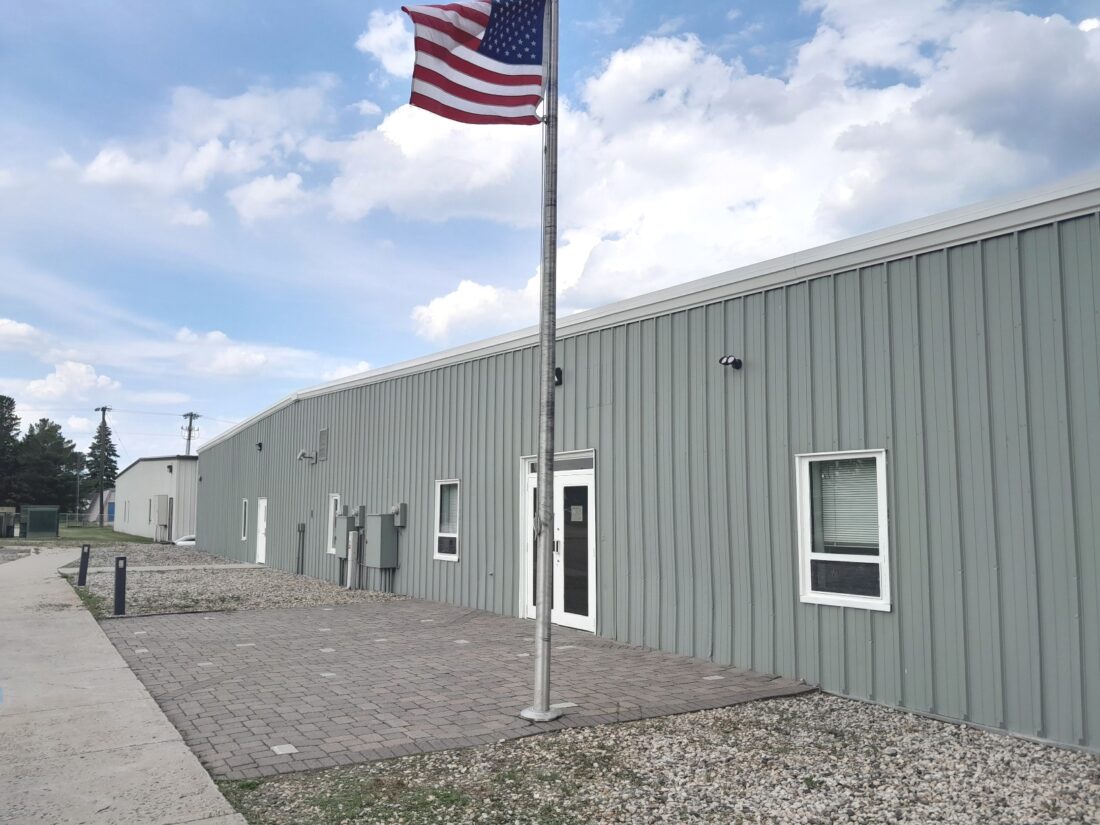State represents defendants in Dunseith RV factory lawsuit

Submitted Photo The Hoefer RV factory in Dunseith is at the center of a federal civil rights lawsuit filed against five Department of Commerce employees.
Attorney General Drew Wrigley filed a notice of appearance on Wednesday, Sept. 11, on behalf of one former and four current North Dakota Department of Commerce officials who are defendants in a federal civil rights lawsuit filed by the owner of a recreational vehicle factory in Dunseith.
According to court documents, Assistant Attorneys General Courtney Titus, the North Dakota Attorney General’s civil litigation division director, and Austin Artz, are officially listed as the attorneys of record for all five defendants, including former Commerce commissioner Joshua Teigen, and current Commerce or North Dakota Development Fund officials Richard Garman, Shayden Akason, David Lehman and James Albrecht.
According to the complaint, Charles Hoefer and Hoefer Group, LLC are seeking punitive damages from each defendant, along with compensatory damages, alleging they used their official positions, powers, authority and influence against him to protect and advance their own self-interests.
The complaint alleges the defendants retaliated against Hoefer and his business in various ways after he discovered evidence the defendants had allegedly withheld information from him regarding their awareness of and involvement in an alleged illicit aerospace parts manufacturing scheme at the former Benchmark Electronics site in Dunseith.
Hoefer’s complaint explicitly stated the State of North Dakota is not a defendant in the lawsuit and has brought no claims against the state.
Hoefer’s complaint identified $1.89 billion in financial damages from alleged lost wages and income, net income, direct business financing damages, lost exit equity, sabotage of industrial complex developments in the Turtle Mountains and from a Canadian partnership, worldwide reputational and public humiliation harm, and emotional distress.
Because the 244 page complaint enumerates more than 100 alleged violations of federal civil rights statutes, untangling the question of who could ultimately be liable for any damages awarded, should the lawsuit end in Hoefer’s favor, is complex.
Based on court filings, the five defendants have invoked their rights under NDCC 32-12.2-03 for the state to defend and indemnify them against any possible compensatory damages in Hoefer’s lawsuit. According to the Century Code, once a state employee has requested the state defend them in a civil action, the head of their department and the Attorney General will make a determination on whether the employee acted within the scope of their employment.
The Century Code requires civil actions seeking damages caused by employees to be brought against the state. However, Hoefer’s lawsuit filed in federal court is against the five defendants in their personal capacities.
While the state has indemnified the defendants against any settlement or compensatory damages awarded in the Hoefer suit, the defendants are still personally liable for any punitive damages that may be awarded.
North Dakota law does have damage caps for claims against the state covered by the state’s fund of $500,000 per person or $2 million per single occurrence. However, such state level damage caps generally don’t apply to federal civil rights cases, based on federal statutes and existing Supreme Court precedent.
The North Dakota Century Code also includes an avenue for the state to pay a judgment in excess of the $2 million limit if the legislative assembly adopts an appropriation authorizing payment of all or a portion of that amount. Though, this statute does not apply to any judgement from Hoefer’s lawsuit, given no claims are being brought against the state.
The determination by current Commerce commissioner Chris Schilken and Attorney General Drew Wrigley appear to have put the responsibility for paying any compensatory damages agreed to in a settlement or awarded after a civil jury trial on North Dakota taxpayers.
Hoefer asserts in the complaint he pursued every remedy available to him before filing the federal lawsuit, including a whistleblower report he submitted in September 2023 to state legislators, North Dakota State Auditor Josh Gallion, Wrigley and then Gov. Doug Burgum.
“As the lawsuit states, without this federal action, there was no avenue of relief available to me. This action is important to seek to expose and stop the practice of state officials openly misusing their offices to deprive citizens’ rights and then just expecting taxpayers to foot the bill, all while allowing officials to move on without consequence,” Hoefer said in a statement to The Minot Daily News. “In this federal personal capacity action, without a new law by the State’s legislature, the defendants are still responsible for punitive damages. The defendants will still have a price to pay for their wrongdoing.”
Titus, Wrigley and Schilken were contacted for clarification and comment regarding the question of liability in this lawsuit. Wrigley and Schilken did not respond, and Titus declined to comment due to the ongoing nature of the litigation.
While this filing represents the Attorney General’s first official appearance in the Dunseith affair, documents provided in an open records request by The Minot Daily News on Wednesday, Sept. 17, shows defendant Akason was engaging with and enlisting the support of assistant attorneys general, including Titus, as early as Aug. 31, 2023 – nearly two years before Hoefer’s lawsuit was actually filed.




